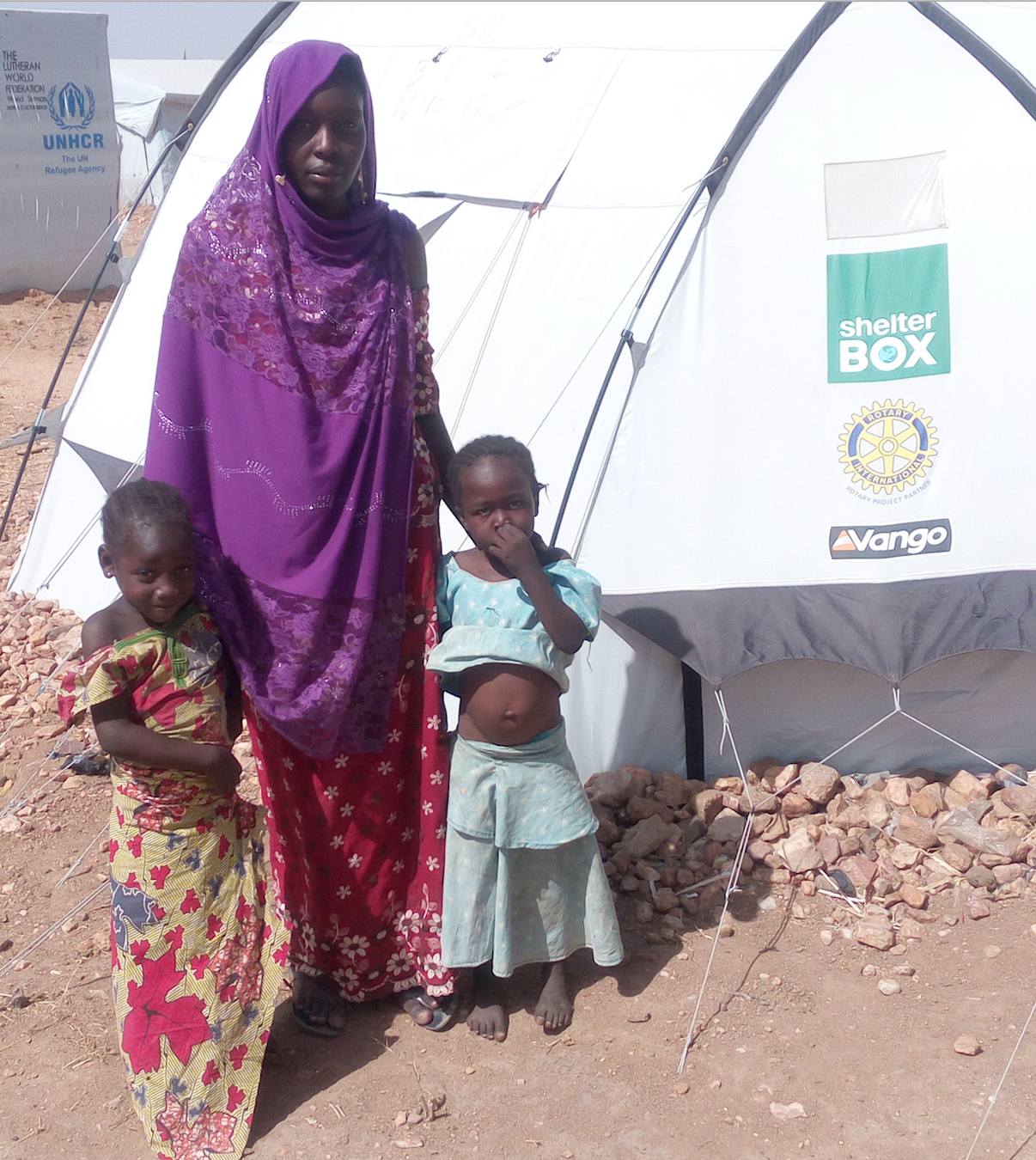31-year-old Falmata is originally from Nigeria.
She now lives in Minawao camp in Cameroon with her seven children and her husband, who was one of the few men to survive Boko Haram attacks on their village in 2017.
These attacks forced them to flee their home and seek refuge in the camp.
Speaking to IEDA Relief, ShelterBox’s implementing partner in Cameroon, Falmata said the violence was like a bad film she will never forget:
“I still have the memory of the day, the hour, and what I was doing. They destroyed our village with bombs and other things. They were raping girls and killing people, especially men. I was in the kitchen and when I went to the living room, nobody was there. I started crying and I took a bag with some clothes then I ran as fast as I could.”
Falmata said they were happy to arrive in Minawao Camp as a whole family but they knew that things were now different from how they used to live. “Being all together, as a family, was like a dream, not everybody had that grace. We were very happy with that, but we knew that our life was a new one. We were in a new country and in conditions we had never been in before. No place to stay alone, nothing to wear, just following instructions”, she explained.
Just like other the families they arrived with in Minawao, Falmata, along with her husband and children, were relocated to emergency tents also known as transit centres. She described the change from her life then.
“There was a great difference between being there [transit centre] and here [ShelterBox tent]. I can easily watch over my children and we can be together sharing food or sleeping.”
The family found it hard to adapt to their new environment at first. They had moved into the camp during the rainy season and the children were getting sick because of the mosquitoes biting them.
Just like her neighbours, Falmata’s children suffered from malaria a lot. She tried different techniques to get rid of them, but they never worked.
“My husband and I tried so many times to find solutions against the mosquito bites. In my village, we used fire wood smoke. But we could not do it here because of the material of the tents. One day we tried to do it outside and sleep near, but we were forbidden to do so because it was risky with some harmful reptiles often seen in the camp”, she explained.
Falmata managed as she could, even if the result was almost worthless as the situation of her family did not really improve. The family were given vital aid items by ShelterBox and IEDA. These items included mosquito nets which Falmata said were a relief for her.
“Let me first of all say thank you very much. When I saw mosquito nets among all the items that I received, I was full of joy because we were told that they protect against mosquitoes when we want to sleep.”
She said that she pays special attention to the use of her nets, using them anytime somebody wants to rest during the day or sleep in the night.
“I don’t want to suffer and spend money as we did before. That’s why I don’t joke. Whenever someone wants to sleep, I make sure the person is well covered by the net. My husband also watches over it. We spent so much money for drugs and seeing the children sick was not easy for us. So, it is our responsibility to always make sure that they are well covered when they sleep.”
Falmata said she feels better knowing that her family are protected from Malaria and is grateful to the donors who have helped to provide this aid.

“The difference is clear now that when we use mosquito nets there is less malaria. Indeed, these nets protect us from mosquitoes, and we can sleep better than the past. The mosquitoes are far from us and we are less annoyed by their noise. We are grateful to ShelterBox and IEDA Relief and we just pray that you keep thinking about our needs to help us have better living conditions.”
RESPONDING RIGHT AROUND THE WORLD
We support the most remote communities across the world that have been affected by disaster.
We go the extra mile to find the most vulnerable families whose lives have been devastated by disaster. Our work isn’t done until no family is left without shelter.
